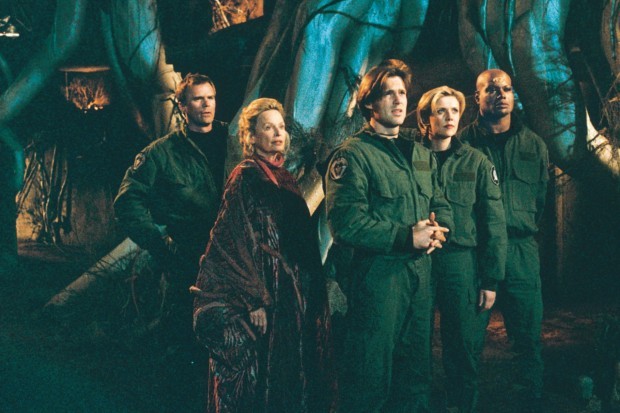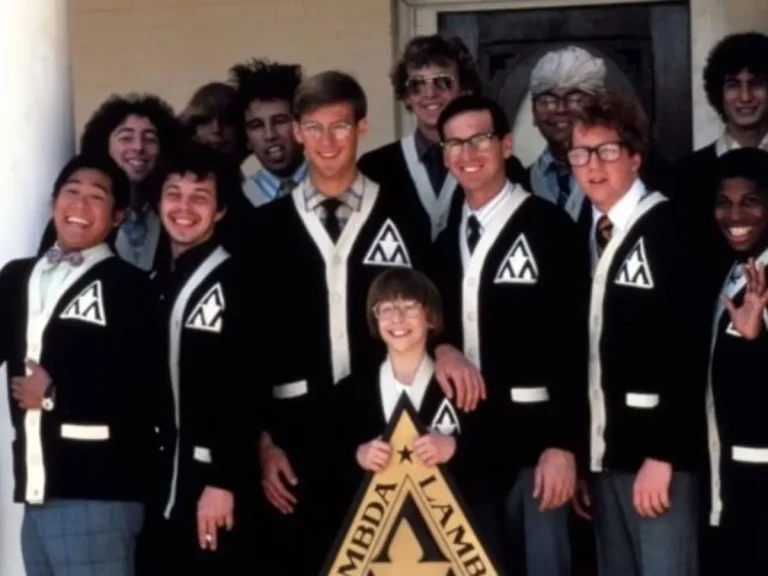Fans of one of the most iconic science fiction franchises in television history have reason to celebrate, as Prime Video announced the return of Stargate SG-1, fifteen years after the original series concluded. The news has sent waves of excitement through the fan community, reaffirming the enduring appeal of a universe that has captivated viewers since its inception.
The original series, which aired from 1997 to 2007, chronicled the adventures of a military team traveling to alien worlds via a mysterious interstellar portal known as the Stargate. The show’s protagonist, Jack O’Neill, portrayed by Richard Dean Anderson, led the team as they encountered alien civilizations, technological wonders, and unexpected adversaries. Alongside thrilling action sequences, the series blended humor, social commentary, and imaginative storytelling, creating a formula that resonated with both casual viewers and dedicated sci-fi enthusiasts.
Stargate SG-1 was notable for its ability to explore complex scientific and philosophical ideas while remaining accessible and entertaining. Episodes frequently balanced military strategy, diplomacy, and scientific curiosity, offering storylines that were both engaging and thought-provoking. Fans have long cited the series as a seminal work in television science fiction, praising its mix of character-driven narratives and expansive world-building. Online communities have frequently described the series as “one of the best sci-fi shows ever made,” highlighting its coherence, attention to detail, and enduring cultural relevance.
The original series’ success led to the creation of multiple spin-offs, including Stargate Atlantis (2004–2009) and Stargate Universe (2009–2011). Each spin-off expanded the universe in unique ways: Atlantis explored a distant galaxy and the legendary city of the same name, while Universe introduced a more serialized, character-focused narrative aboard the spaceship Destiny. The conclusion of Stargate Universe marked the end of the franchise’s television presence for over a decade, leaving fans eager for new content and signaling a gap that has now been addressed by Prime Video’s reboot.
At the center of the franchise’s revival is Martin Gero, who served as a story editor on Stargate Atlantis during the early 2000s. Gero brings decades of experience within the Stargate universe and a deep understanding of its lore, having worked across all three original series. In a statement, he emphasized his connection to the franchise: “Twenty years ago, my first real job in television was as a Story Editor on Stargate: Atlantis. I spent five years at the franchise working across all three series. Stargate taught me everything about making television – it’s written into my DNA.”
Gero is expected to act as showrunner for the new series, guiding the narrative into uncharted territory while respecting the established universe. He expressed his intention to cater to longtime fans as well as newcomers: “For those who’ve kept the gate active through conventions, rewatches, and unwavering faith – this one’s for you. And for those that are new to our world – I promise you’re in for something extraordinary.”
Alongside Gero, original showrunners Brad Wright and Joe Mallozzi are returning as consulting producers, providing continuity and preserving the franchise’s distinctive tone and mythology. Their involvement ensures that the reboot will remain faithful to the universe’s complex storytelling while integrating contemporary production values and modernized narrative approaches.
The decision to reboot Stargate SG-1 highlights the franchise’s enduring relevance and ability to attract audiences across generations. Nick Pepper, Head of US SVOD TV Development for Amazon MGM Studios, noted, “Stargate is an enduring, iconic franchise that has captivated audiences for decades with its bold exploration of humanity’s place in the cosmos.” The show’s longevity is a testament to its compelling blend of science fiction, adventure, and philosophical inquiry, which continues to resonate in an era defined by streaming services and global media access.
Fans have responded enthusiastically to the announcement. Social media platforms quickly became inundated with reactions expressing excitement, nostalgia, and anticipation. Many shared memories of watching the series during its original run, citing its unique combination of action, humor, and thoughtful exploration of morality and human ingenuity. Reddit threads and fan forums have speculated on potential storylines, casting possibilities, and the narrative direction the new series might take, demonstrating the franchise’s deep and engaged fan base.
The upcoming reboot will continue the tradition of exploring interstellar travel and alien cultures while updating visual and narrative elements to meet contemporary audience expectations. Technological advancements in special effects, cinematography, and storytelling techniques will allow the new series to expand upon the imaginative worlds introduced in the late 1990s and early 2000s. While remaining true to the franchise’s core identity, the reboot also promises to attract viewers unfamiliar with the original shows, offering a fresh entry point into the expansive Stargate universe.
The franchise’s origins lie in the 1994 Stargate film, which starred Kurt Russell as Jack O’Neil and James Spader as Dr. Daniel Jackson. The film introduced the concept of a network of ancient portals capable of transporting humans across the galaxy. The adaptation to television allowed for extensive world-building and deeper exploration of the science fiction concepts introduced in the movie. Actors Alexis Cruz and Erick Avari, who portrayed Skaara and Kasuf in the film, reprised their roles in SG-1, adding continuity and connecting the cinematic and television iterations of the story.
Over the years, Stargate SG-1 became recognized not only for its storytelling but also for its ability to integrate humor and character-driven moments into high-stakes adventures. The series consistently explored ethical dilemmas, leadership challenges, and interstellar diplomacy, making it a standout within the genre. Its combination of approachable science fiction, military strategy, and interpersonal relationships allowed the franchise to appeal to a wide range of viewers, ensuring its legacy in popular culture.
The reboot is positioned to leverage streaming platforms, particularly Prime Video, to reach a global audience. The accessibility of streaming services allows the series to connect with a new generation of viewers, many of whom may have limited exposure to the original runs of SG-1, Atlantis, or Universe. By offering on-demand access, the franchise can build anticipation, engage fans in interactive discussions, and cultivate a renewed fan community around contemporary science fiction storytelling.
In addition to narrative continuity, the series’ production will likely prioritize inclusivity and diversity, reflecting contemporary expectations of global audiences. By exploring new planets, civilizations, and challenges, the series can incorporate diverse perspectives and themes relevant to modern viewers, while remaining faithful to the core principles and imaginative spirit of the original franchise.
The reboot represents a rare opportunity to bridge nostalgia with innovation. Longtime fans can anticipate the return of beloved characters, signature technological concepts, and familiar narrative motifs, while newcomers can enjoy a contemporary production that emphasizes cinematic quality, immersive storytelling, and cultural relevance. The careful involvement of original creators and consulting producers ensures that the reboot honors the franchise’s legacy while positioning it for success in the current media landscape.
From the storytelling perspective, the series’ writers face the challenge of balancing continuity with fresh ideas. The expansive lore developed over three series provides a rich foundation, yet modern audiences expect complex narratives, character development, and sophisticated visual effects. The reboot promises to meet these expectations, combining the adventurous spirit of the original SG-1 with updated production values and thoughtful engagement with contemporary science fiction themes.
The show’s premise—interstellar travel through a portal system—remains ripe for exploration. The narrative allows for endless creativity, including encounters with new civilizations, moral dilemmas, and philosophical questions about humanity’s role in the cosmos. By building on established lore, the series can maintain internal consistency while introducing novel elements that expand the franchise’s universe in compelling ways.
The excitement surrounding the reboot reflects a broader trend in media: the revival of classic franchises for new audiences. In an era where streaming platforms dominate entertainment consumption, beloved intellectual properties with established fan bases offer a strong foundation for success. The return of Stargate SG-1 exemplifies how enduring narratives can be revitalized, offering both nostalgic satisfaction and innovative storytelling.
With Martin Gero at the helm, the involvement of original producers, and the backing of Prime Video, the franchise is well-positioned to recapture the imagination of audiences worldwide. The combination of legacy, creative leadership, and strategic platform placement ensures that the reboot has the resources and vision necessary to succeed.
In conclusion, the return of Stargate SG-1 after 15 years represents a landmark moment for science fiction television. The franchise’s rich history, iconic characters, and imaginative storytelling provide a strong foundation, while the reboot promises to enhance the universe with modern production values, engaging narratives, and a commitment to honoring the original series. Fans can anticipate a blend of nostalgia, adventure, and innovation as the series reopens the Stargate and invites viewers on a journey across the cosmos once again.

Emily Johnson is a critically acclaimed essayist and novelist known for her thought-provoking works centered on feminism, women’s rights, and modern relationships. Born and raised in Portland, Oregon, Emily grew up with a deep love of books, often spending her afternoons at her local library. She went on to study literature and gender studies at UCLA, where she became deeply involved in activism and began publishing essays in campus journals. Her debut essay collection, Voices Unbound, struck a chord with readers nationwide for its fearless exploration of gender dynamics, identity, and the challenges faced by women in contemporary society. Emily later transitioned into fiction, writing novels that balance compelling storytelling with social commentary. Her protagonists are often strong, multidimensional women navigating love, ambition, and the struggles of everyday life, making her a favorite among readers who crave authentic, relatable narratives. Critics praise her ability to merge personal intimacy with universal themes. Off the page, Emily is an advocate for women in publishing, leading workshops that encourage young female writers to embrace their voices. She lives in Seattle with her partner and two rescue cats, where she continues to write, teach, and inspire a new generation of storytellers.









